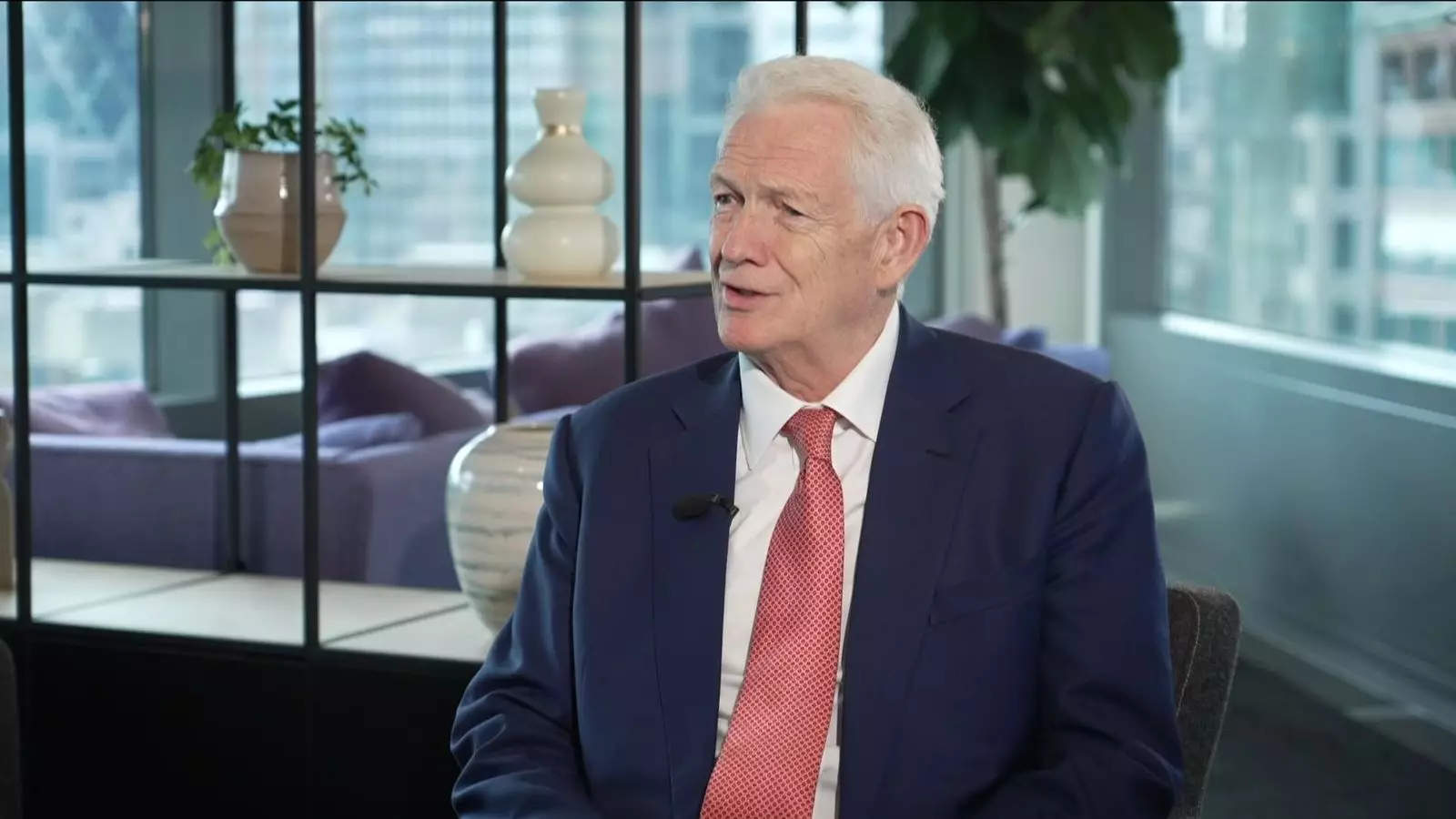The Chairman of NatWest, Rick Haythornthwaite, recently took a moment to reflect on the bank’s tumultuous relationship with British taxpayers, expressing immense gratitude for their role during the infamous 2008 financial crisis. While there is an undeniable sense of honor in acknowledging the sacrifices made by the public, one cannot ignore the contradictory nature of his words. What began as a necessary bailout has transitioned into a narrative that risks romanticizing a problematic period in finance, one that ultimately contributed to the erosion of trust in our financial institutions.
Haythornthwaite’s sentiments echo the traditional narrative of the “heroic taxpayer,” yet they gloss over the crass losses endured by the general populace. It’s one thing to appreciate the taxpayer’s role in salvaging the bank from its self-inflicted wounds; it’s another to overlook the fact that while the bank clawed its way back to stability, ordinary citizens saw their livelihoods jeopardized and wealth evaporate. The proposed gratitude seems hollow against the backdrop of a £10.5 billion loss that the government must shoulder. Were taxpayers genuinely heroes, or were they merely left holding an unpalatable debt?
Regulatory Reform: Reassessing the Pendulum Swing
The discussion of regulatory reforms as espoused by Haythornthwaite introduces a contentious issue that provokes varied responses. While he acknowledges the necessity of stringent regulations post-crisis, he hints at potential overreach—claiming that the balance may have “swung too far.” This perspective raises a fundamental question about how we conceptualize the safety nets meant to protect consumers and ensure the integrity of financial systems.
Haythornthwaite’s assertion that high-quality regulations exist alongside duplications and inefficiencies strikes a chord. However, while it is prudent to refine our regulatory approach, one must be exceedingly cautious not to dilute the hard-earned lessons of accountability gained from the recent past. The language used speaks to a dangerous nostalgia—a yearning for a less regulated financial landscape that permitted institutions like NatWest to engage in reckless behavior. It’s crucial to ask: is this a call for balanced regulation or a dangerous flirtation with the same reckless spirit that precipitated the crisis? We cannot afford to become complacent in our vigilance.
Political Implications and Economic Growth: Rethinking Priorities
The broader political context surrounding NatWest’s narrative presents a significant dilemma. Chancellor Rachel Reeves’ open-mindedness towards the idea of relaxing some of the post-2009 reforms reveals an agenda fixated on accelerating economic growth rather than securing consumer trust. In the pursuit of maximizing profits, we risk undermining the very principles on which a stable economy is built.
The paradox of seeking growth while attempting to maintain ethical standards in banking is one that is seldom addressed openly. Haythornthwaite takes pride in the ethical emphasis that emerged in banking culture post-crisis, yet advocates for changes that could jeopardize these very principles. As the political and financial sectors gaze towards purported growth, one must question whether we are losing sight of what truly matters for society at large—the well-being and trust of ordinary citizens.
The Need for a Collective Memory: Avoiding Historical Amnesia
As NatWest moves forward in its trajectory towards complete privatization, we must remain steadfast in collective memory. There is a potent risk in allowing the narrative of gratitude and redemption to overshadow the deep scars left by the financial crisis. An amnesiac society is one ripe for exploitation, where history’s lessons are conveniently swept under the rug in favor of progress—progress that may ultimately lead us back to the precipice of risk-laden banking practices.
Haythornthwaite is correct in stating that the lessons of the past must not be forgotten, yet the urgency of such a reminder cannot be overstated. The reconciliation of gratitude with a critical analysis of the events surrounding the crisis must be at the forefront of our discourse. Only then can we foster a financial environment that cherishes accountability, protects consumers, and ensures that taxpayers are not merely footnotes in the saga of corporate resurrection.

